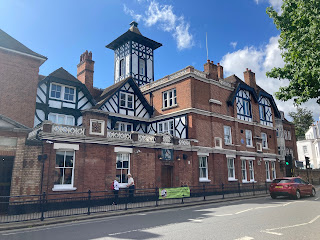ChatGPT may learn to write good stories... but will it be allowed to tell them? by Griselda Heppel

ChatGPT in action. Photo by Matheus Bertelli: https://www.pexels.com/ photo/laptop-office-working-internet-16094045/ Katherine Roberts’s experiment with ChatGPT got me thinking. As yet this AI writing tool can in seconds produce reams of prose, matching the prompts given, in a way that no one, adult or child, will ever want to read. So far, so good. (Or satisfyingly bad.) But any complacency on the part of genuine flesh and blood authors is misplaced. As Katherine and others have pointed out, this bot learns quickly. We can’t rule out that, sooner or later, given enough original material from an inventive editor, say, it will be able to create a gripping, heart-warming tale with all the right kind of characters, and dialogue that doesn’t make your ears bleed. Something actually readable. Publishing houses will save heaps of dosh by eliminating authors altogether from the equation and we writers will, er, be written out of history. An alarming prospect, and not just fo...





